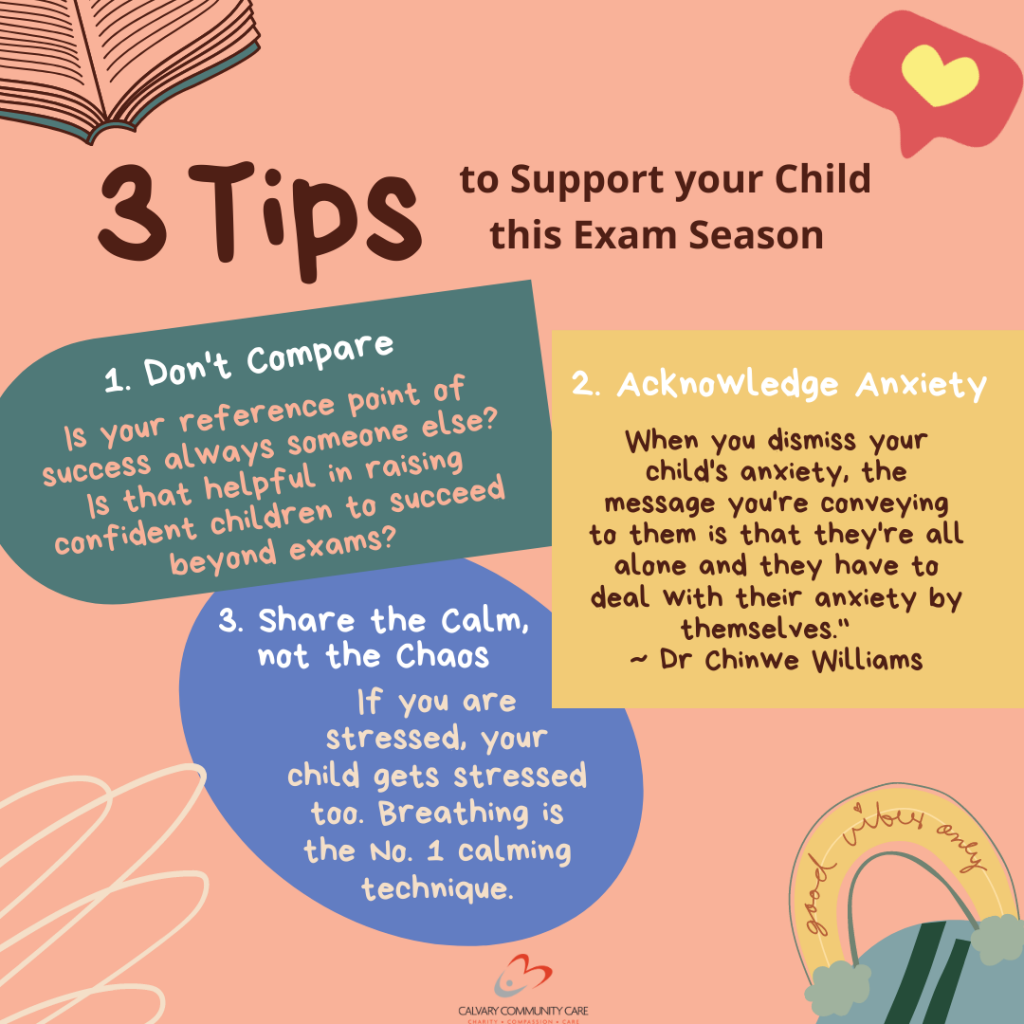3 Tips to Support your child this Exam Season

3 Tips to Support your child this Exam Season
We believe that as you apply these 3 tips to support your child this exam season, it will definitely make a difference!
1. Don’t Compare
Who doesn’t want our children to succeed in school? But as parents, we need to look at what success means. It’s easy to join in the compare and compete game with other parents, especially in parent chat groups. You may often find conversations like, “I think you should buy this assessment book or enroll your child in this tuition/enrichment centre…etc.”
It’s also tempting to just follow what other parents are doing or rattle off statements like, “let’s buy this assessment book because Sarah used it and aced the exams.” To your child, it sounds like your reference point of success is always someone else. How would that be helpful in raising confident children to succeed not just in exams but beyond that? Tough question but necessary in framing our mindset.
2. Acknowledge Anxiety
“When you dismiss your child’s anxiety, the message you’re conveying to them is: they’re all alone and they have to deal with their anxiety by themselves,” says Dr Chinwe Williams, a licensed professional counselor in Atlanta, USA.
Empathy is powerful. Firstly, acknowledge your child’s experience and put yourself in their shoes. Secondly, be mindful of your tone and withhold judgement. The goal is to have honest discussions to help your child release their struggles and have a better handle of the situation. Finally, help your child know you walk the journey with them, not with lectures but with affirming words that build them up, not tear them down.
Proverbs 12:25 says: “Anxiety weighs down the heart, but a kind word cheers it up.”
3. Share the Calm, not the Chaos
If you are stressed, your kids get stressed too. They can feel the stress vibes coming out from you which in turn affects their state of mind. According to Psychotherapist Scott Dehorty of Delphi Behavioral Health, “Breathing is the number one and most effective technique for reducing anger and anxiety quickly.”
We tend to take quick, shallow breaths when we are anxious or angry. Dehorty says this sends a message to your brain, creating a feedback loop to trigger your fight-or-flight response. Taking long, deep calming breaths disrupts that loop and helps you calm down. Other ways to calm down include visualizing yourself calm, listening to music or exercising, like walking or running. Engaging in some physical activity releases serotonin to help calm you down.
Author L. R. Knost says, “When little people are overwhelmed by big emotions, it’s our job to share our calm not join their chaos.”
-Written by: Mavis Chia
Mavis is a volunteer in Calvary Community Care’s (C3) GROW programme for the last 10 years. Formerly a primary school teacher, Mavis enjoys reading to children and reading inspirational content.




